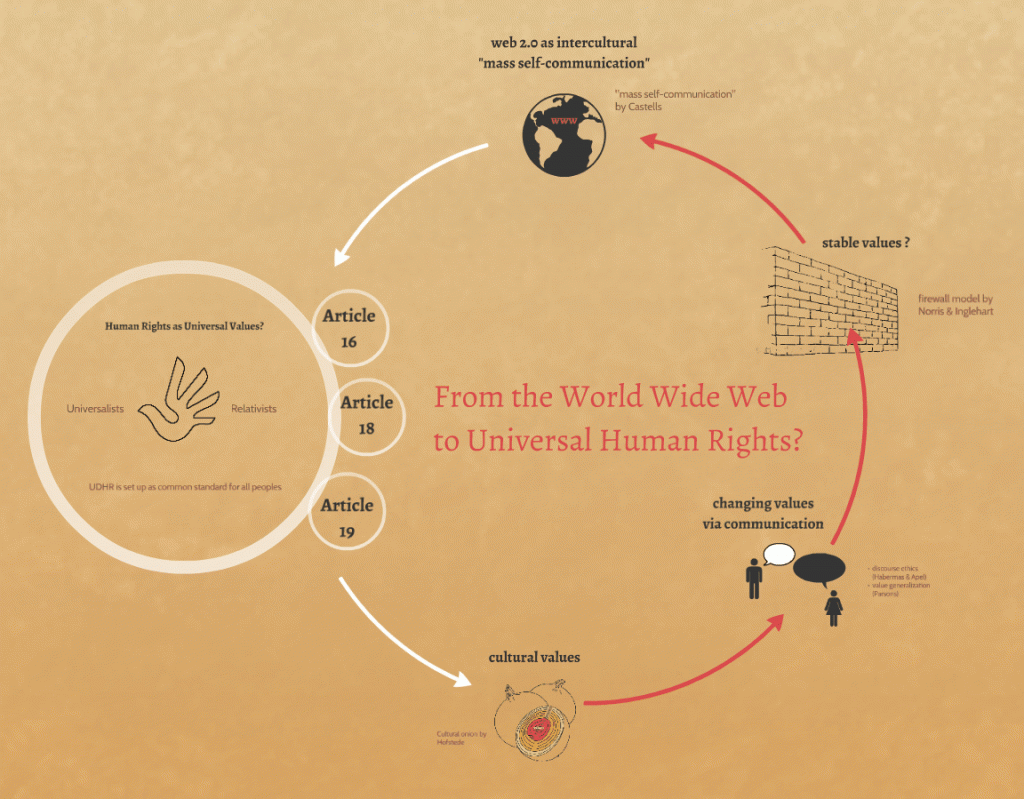Before going more into detail concerning the influence of media on cultural identity I’d like to specify the area where (individual) human rights and cultural values are said to clash. This is where all the discussion on universality and relativism takes place and this is the area I’d like to contribute to.
The Universal Declaration of Human Rights (UDHR) – the most popular declaration of human rights – inherits the above-named problem: Individual rights (e.g. the freedom to change one’s religion, Article 18 UDHR) can clash with cultural rights (e.g. the right freely to participate in the cultural life of the community, Article 27 UDHR).
The basic assumption underlying the idea of cultural relativism is that human values vary depending on different cultural perspectives. But don’t they also depend on factors like time, the subject of research and the type of society?
This boils down to some basic questions:
- Do cultural values really clash with values declared in the UDHR or is it the political elite in some countries, trying to make us believe that these values clash?
- Shall the UDHR be understood as a fixed set of values that will not change over time?
- And consequently: Shall cultural values be understood as fixed?
- Is the smallest social unit an individuum or a group?
I’ll have to answer these questions to be able to contribute to the discussion about relativism and universalism from a digital perspective.


